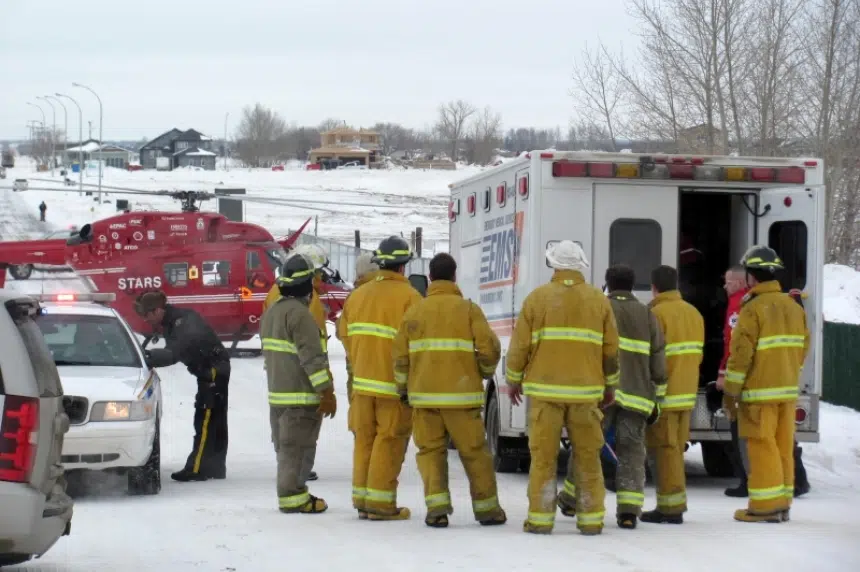Hundreds of drivers were charged for going too fast past emergency vehicles in Saskatchewan in two separate traffic-safety-blitz weeks
During the week of Oct. 19, RCMP kept an eye out for drivers who didn’t slow to 60 kilometres per hour when passing emergency vehicles. During that week, 273 drivers were charged. In a previous traffic safety blitz in June, 205 drivers were charged.
“Educating travelers to slow to 60 km/hr when passing emergency vehicles is very important,” Highways and Infrastructure Minister Nancy Heppner said in a news release. “We need to ensure traffic laws are followed so first responders can do their important work as safely as possible.”
Kyle Sereda, chief of Moose Jaw and district EMS, says responding to a call on the side of a busy road is one of the scariest things a paramedic can face.
“It’s extremely nerve-racking and it adds so much more pressure to the situation because not only are you worried about what you were originally called for, you have to be very hyper aware of what’s happening around you.”
Sereda says having drivers slow down when passing emergency vehicles not only keeps paramedics and responders safe, it also keeps the driver safe.
“The speed is important because it allows the driver to react to anything that may or may not be happening in that scene – a responder that maybe steps out of the vehicle or is coming alongside the ditch … having a slower speed when driving by these scenes allows the driver to react more appropriately.”
In the past two years, Sereda knows of an ambulance from Regina that was responding to a call on the highway during a snow storm and was hit by a passing vehicle. In that case, the patient being treated by the paramedics was more badly hurt.
There have also been times when paramedics are responding to calls on the Trans-Canada Highway in Moose Jaw where a passing vehicle launches over the crew, with the people inside then becoming injured themselves.
“The fact that I’m speaking of more than one suggests there are far too many that occur,” Sereda said.
“I can say from personal experience and a few close calls that it’s extremely nerve-racking and certainly doesn’t have to be the case if … people driving by these scenes simply slow down for the paramedics, the police officers, the fire department, tow trucks – anybody that’s involved.”
Fines start at $210 for drivers going 10 km/h faster than the maximum of 60 km/h when passing an emergency vehicle.
**Note: A previous version of this story reported that 478 charges were laid in one week based on information provided by the provincial government. That number has since been updated.







